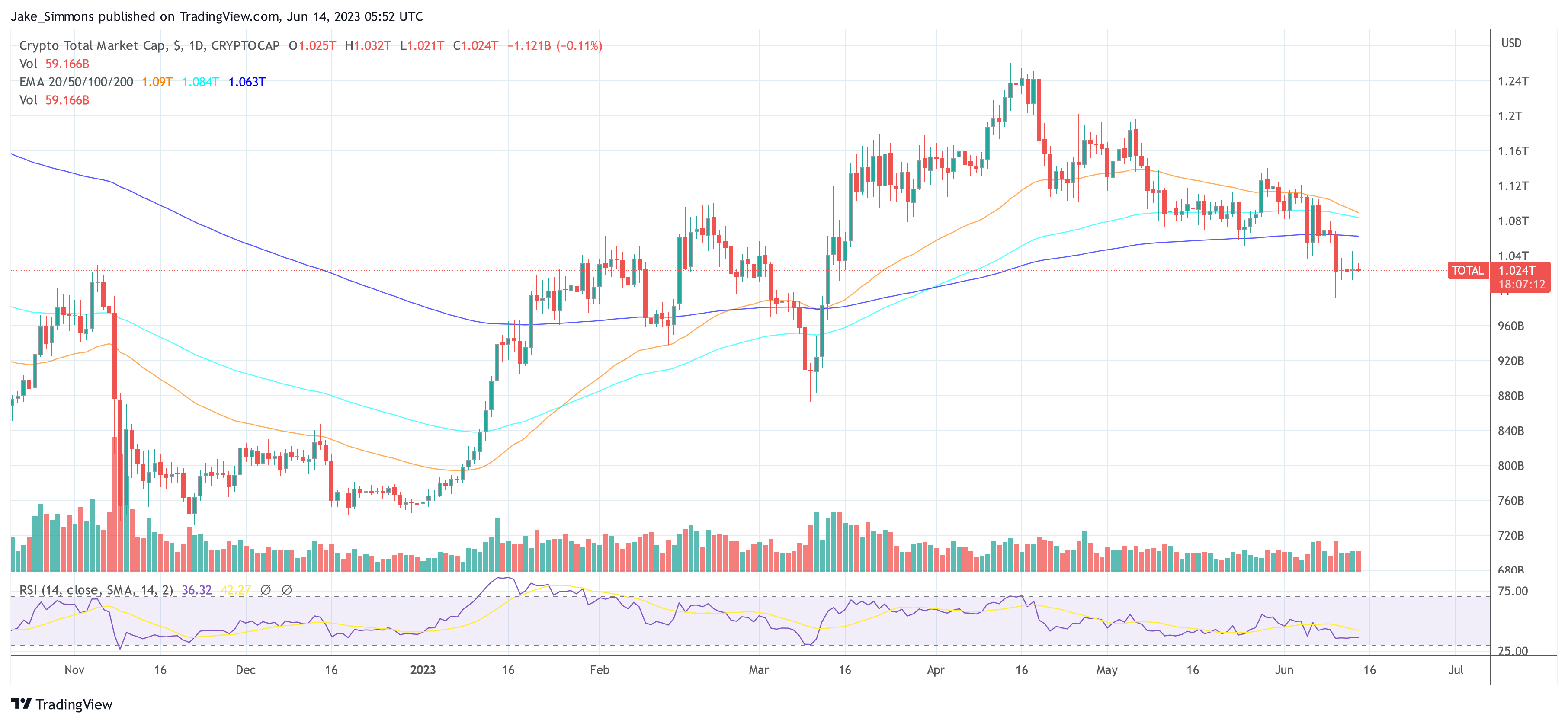The last 24 hours have been highly significant for the American crypto industry, as Bitcoinist previewed. And the outcome couldn’t have been much better for the industry, with the US Securities and Exchange Commission (SEC) taking some beating.
Most eagerly awaited were the Hinman documents in the legal battle between Ripple Labs and the SEC yesterday. Not only the XRP community, but the entire industry was watching tensely for the revelations, hoping that the regulator’s flimsy view would be exposed.
As Roslyn Layton explains, the Hinman emails expose the SEC and show an agency that cares more about its own turf than protecting investors. “They also show a high-ranking official ignoring explicit internal warnings that he was not following the law,” Layton says.
Several messages reveal that SEC officials were well aware that the speech would lead to “greater confusion”. Moreover, the SEC’s Office of General Counsel (OGC) warned that if the SEC took a different position on Ether (ETH) in the future, it could lead to trouble. As is well known, however, Hinman disregarded this directive and made ETH a focus of his speech.
Ultimately, the Hinman emails thus show that the SEC had at least silently agreed to Hinman’s speech, but did not take any follow-up action. Ultimately, the emails provide all the US crypto industry members with a fair notice defense, which Ripple also asserts. Coinbase CLO Paul Grewal says:
“The regulatory gap.” Proof from the Hinman emails of what we’ve been saying to the Third Circuit, to Congress and to the SEC itself: that the securities laws are incomplete when it comes digital assets, that securities law aren’t meant to rule over all digital assets, and that many digital assets are not securities.
Other SEC Defeats Vs Crypto
Binance US was able to celebrate at least a partial success a few hours ago. The federal judge overseeing the US Securities and Exchange Commission’s case against Binance US ruled that the SEC cannot shut down Binance US and rejected the restraining order to freeze the assets of the US trading platform.
The judge said there was “absolutely no need” for a restraining order and ruled that the two sides must sit down and find a compromise. Binance has indicated that they are willing to agree to some form of asset freeze on Binance US as long as they are still able to conduct business as usual, which would include the ability to make customer withdrawals.
Coinbase has also taken at least one more important step towards winning against the SEC. The regulator had until yesterday to comment on the rulemaking petition.
The SEC wants 120 days to respond to Coinbase’s deadline for rulemaking. This shows that the SEC is playing for time and feels cornered. Paul Grewal, Chief Legal Officer (CLO) commented that the SEC is repeating the fallacy that they have not yet made a decision on new crypto rules.
The agency refuses to commit to a deadline despite the court’s explicit order. Instead, they “expect” to make a “recommendation” in 120 days. Nevertheless, the renowned lawyer John E. Deaton sees this as a partial success:
I truly believe good judges will continue to see the bad faith coming from the SEC. Judge Netburn, in the Ripple case, stated the SEC “lacks faithful allegiance to the law.” The judge in Voyager took the SEC to task. The judges in the Grayscale appeal openly questioned SEC inconsistencies. Hopefully, the Judge here orders them to respond within 30 days.
Last but not least, the U.S. House Committee on Financial Services held a hearing yesterday. Tom Emmer revealed that Gary Gensler told Congress last year that he needed legislation to regulate the digital asset industry, but this year he says he does not.
In addition, all Republicans on the House Financial Services Committee have sent a letter to the SEC calling for the withdrawal of proposed changes to the definition of “exchange”. The definition would stifle innovation and harm market participants for digital assets.
Under Gensler, the SEC is pursuing a regulation by enforcement approach to digital assets that has repeatedly failed to protect consumers and smothers financial innovation.
Republicans are working on comprehensive legislation to end Chair Gensler’s reckless actions. pic.twitter.com/5mE80E6JI5
— Financial Services GOP (@FinancialCmte) June 13, 2023
At press time, the total crypto market capitalization was below the currently most crucial indicator, the 200-day EMA (blue line), and stood at $1.024 trillion.





